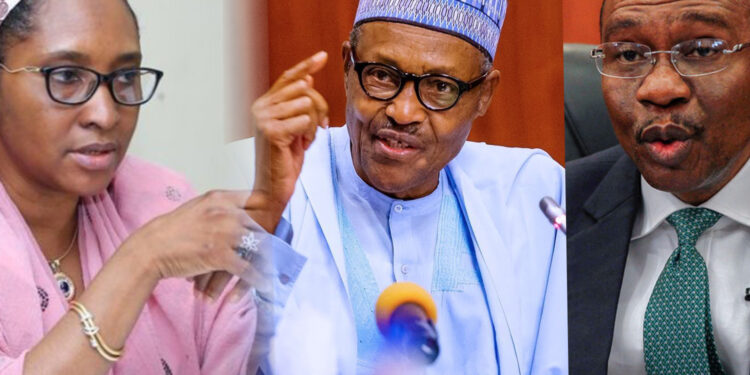As Pesident Muhammadu Buhari led government begins gradual winding down its activities, the general consensus is that Nigeria’s ongoing economic and sovio-political challenges would not have been as deep or prolonged if not for self-inflicted wounds that worsened a fragile but manageable situation.
The earlier self-styled statist disposition said to be committed to the welfare of the masses with zero tolerance to corruption, conspiracy of politicians and elite class against the masses, high level impunity among both elected and appointed leaders are believed by them to have aggravated the situation.
Consequently, there was emergence and retention of some policies like the multiple exchange rate and the attitude of we-know-it-all regime, ineffective responses to early warning signals, among others also contributed to deepening the crisis that has manifested in over half of the population multidimensionally poor, some companies operating below capacity utilization and over 30 percent unemployment rate.
Also, the manifest display of lack of political will that resulted in government overlooking some issues and actions of some state and non-state actors that impacted negatively on the economic and political wellbeing of the state, lack of effective communication by Ministers and aides on the country’s economic plan, veiled hostility to the private sector, the Nigerian economy had nowhere to go but down.
The fact that the leadership was for the major part of the beginning of the administration, living in self-delusion that the country was headed for a major economic disaster and that they came into the space as ‘messiahs’ resulted in the Federal Government’s economic flip flops and refusal to embrace a market driven, private sector led jobs and growth agenda.
For instance, the nation’s Statistics Bureau Agency (NBS) reported that Nigeria went into in recession as its economy slumped 2.06 percent in the second quarter (Q2) of 2016 after 0.4 percent contraction in the first quarter.
Also, bombing of oil infrastructure in the Niger Delta cut oil output and led to a 17.48 percent contraction in oil GDP, while the fixed exchange rate regime in place for more than a year, hurt the manufacturing sector which contracted by negative 3.36 percent.
Both sectors (Manufacturing and Oil and Gas) combined, then made up about 17.68 percent of Nigeria’s economic output.
Since, then it had been one economic crisis to another, which resulted in another round of recession, strikes, high level insecurity, intensified attacks on oil installations and assets until recently that assistance of non-state actors were sought that resulted to the reduction of the attacks and the attendant positive impact on oil production output.
The poor management of the Foreign Exchange market, occasioned by several interventions by government for allocation of FX to some non-essential sectors and some individuals and corporate organizations continues to take its toll on the sector, shutting down companies and laying off workers.
Friday Ameh said, for instance that the mouthed diversification was a hoax as even government’s interventions through direct loans to some farmers did not yield the desired result as it was poorly executed.
“Most of our problems, from economic to social and political were mostly self-inflicted. From unnecessary delays to incompetence in some instances and outright sabotage on the part of some officials were responsible. The most unfortunate aspect of it all is that some of those ills are still manifesting today, even on a larger scale. This is however unfortunate,” Ameh said.
According to another analyst, “the unfortunate aspect was that the signs of the impending crisis were usually obvious but, preventive measures are not taking, and even remedial actions are usually flip flop, laced with motives to protect certain interests, tribe of religion. “
According to a financial analyst, “the continued retention of the subsidy regime, though obvious that it’s a drain on the nation’s dwindling resources, but for lack of political will to stop it is a major disservice to many Nigerians.
